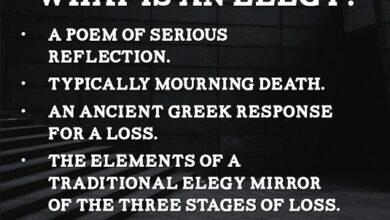What is Classicism Historical context and Characteristics
Classicism
Classicism corresponds to a cultural artistic movement that took place during the Renaissance period (from the 15th century) in Europe .
The name of the movement that marks the end of the Middle Ages and the beginning of the Modern Age, makes reference to classical models (Greco-Roman).
In the field of literature, Classicism is the name given to the literary styles that prevailed in the sixteenth century, at the time of the Renaissance. Therefore, the production of this period is also called Renaissance Literature .
Historical context
In the Middle Ages, a period that lasted ten centuries (V to XV), the main attribute of society was religion.
This moment was marked by theocentrism , whose motto was the dogmas and precepts of the Catholic Church, which increasingly acquired followers.
Thus, people who were against or questioned these dogmas were excommunicated, in addition to suffering jettison from society, or in the last case, death.
Humanism, which emerged from the 15th century in Europe, began to question several issues once scientism was emerging.
Many scholars were able to propose new ways of analyzing the world and life, which were beyond the divine. That is, they presented issues based on human rationality and anthropocentrism (man at the center of the world).
This moment was marked by great transformations and historical discoveries:
- the Great Navigations;
- the Protestant Reformation (which led to a religious crisis) spearheaded by Martin Luther;
- the invention of printing by the German Gutenberg;
- the end of the feudal system (beginning of capitalism);
- the scientism of Copernicus and Galileo.
It was in this context that people sought new artistic expressions based on the classical balance.
Thus, the cultural renaissance arose , a period of great artistic, cultural, and political transformations that spread throughout the European continent.
Characteristics of Classicism
The main characteristics of classicism are:
- Classic antiquity
- Anthropocentrism
- Humanism
- Universalism
- Rationalism
- scientism
- Paganism
- Objectivity
- Balance
- Harmony
- formal rigor
- Greco-Roman Mythology
- Platonic and beauty ideal
Main authors and their works
Certainly, in Portuguese literature, the author who receives prominence is Luís Vaz de Camões, with his work “ Os Lusíadas ” (1542). Already in Spain, Miguel de Cervantes (1547-1616) with his most notable work “ Don Quixote ” (1605).
Also noteworthy are the Italian humanist writers:
- Dante Alighieri 1265-1321), with his most popular work “ The Divine Comedy ” (1555);
- Francesco Petrarca (1304-1374), father of humanism and inventor of the sonnet;
- Giovanni Boccacio (1313-1375), with his work Magma “Decameron” (1348 and 1353).




